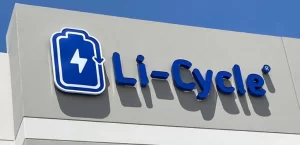Red Deer, Alberta — Circular Rubber Technologies is opening a new automotive rubber recycling plant in Red Deer, Alberta.
The plant will be a $16 million dollar venture and will be the first demonstration plant for a new tire-recycling process that aims to “infinitely” reuse the world’s existing rubber.
Shauna LeBlond, chief innovations officer at Circular Rubber Technologies described in a recent press release that the plant takes rubber crumbs from old mining truck tires and puts them through a proprietary and sustainable thermal-mechanical process. No additional chemicals will be added and no harmful emissions should result, and a rubber sheeting material will be created that can then endlessly be reused by tire manufacturers to make new tires.
This process has been in development since 2018 with help from research partners at universities across Canada as well as a business partnership in Germany.
Every year, about 20 million tons of natural rubber is needed to make new tires—the majority of which end up in landfills. The Red Deer plant is expected to save 12,000 tons of carbon dioxide annually, equivalent to the offset from 462,000 trees.
The demonstration plant will be testing the process of rubber recycling for commercialization. The plant will be built in the Queen’s Industrial park area before the end of 2024. This area was chosen because Red Deer is in a central location which is needed to transport the required feedstock.
A plant manager has already been hired and interviews are reportedly underway to fill an expected 30 double-shifted positions once the plant is fully operational, said LeBlond.
The Vancouver-based company is also already short-listed for an Alberta Emerald award, as well as other ecological and invention awards.
“As Circular Rubber Technologies devulcanizes end-of-life industrial tires, the local plant—which received $3.2 million in funding from Emission Reduction Alberta—will manage the rubber waste sustainably and foster economic growth,” LeBlond concluded.





















